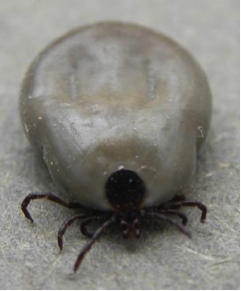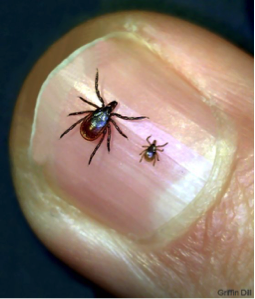FAQs
Frequently Asked Questions about Massage, Private Practice, Employment, State Laws, and More
Discounts available for members:
VistaPrint gives all members a 25% discount on purchases.
Massage Warehouse gives amta members 30% discounts.
Office Depot and Office Max also offer member discounts.
Upcoming Trainings:
Annual Meeting 2021 More information will be shared here.
.The AMTA National Convention:
TBA
.Question: Does AMTA require Continuing Education Units (CEUs)?
Yes. The AMTA requires 48 hours of education every 4 years. These CEUs may be the same ones used for other organizations such as NCBTMB.
Question: Regarding AMTA student members, do they have to be attending AMTA member schools? No. Students from any massage school may become AMTA student members.
Question: Can we legally use CBD oil in massage sessions in the state of Maine? Does it make a difference if it is hemp or marijuana based?
The Maine law does not specify anything about the types of oil or lotions that may or may not be used. Then if you are using a product that is legal to have or own, you have acquired it legally, and the client is in agreement with its use, it is legal.
Question: CBD oil information update:
Can one get CEUs for attending classes on the use of CBD oil? No. Not as of Aug 2018.
Have you asked permission to use it? In Oregon you have to have written consent from the client to use it.
Other questions to consider:
- Is it contraindicated for the medications they are taking?
- Is the aroma something that the client may be allergic to?
- Is the aroma strong enough to interfere with sensitivities in adjacent offices?
What about use on pregnant clients or use by a pregnant practitioner? When the MT is pregnant they should only use the oil when wearing gloves. In Oregon the massage therapists are always required to wear gloves when applying CBD oils.
You may want to ask clients’ doctors for a release to use the oil on a client. Though probably a doctor will not give a release for massage with CBD oil; yet they may give the client a prescription for it.
Question: Are we required by Maine law to keep soap notes? If a lawyer ask for notes for an insurance claim can I charge the lawyer for my time to produce the notes?
While there is no legal requirement for massage therapists to keep soap notes, it is the best practice to keep detailed and dated soap notes. Alex Rheault adds: “All medical, psychological, and other treatment practitioners, use some form of records/correspondences, and these are invaluable for the future of our work. As a practitioner. soap notes and a journal help me consider my growth and practice, how techniques are effective, when, where, and even why. “ (Alex will be doing a peice on soap notes for a future newsletter.)
The state law governing massage therapy was attached to the last newsletter and can be found on the chapter website. (see link at the top of the newsletter.)
As a professional, you can certainly charge for your time but you may never receive payment.
If you haven’t kept soap notes, then the notes you create would be from memory, and would be questionable. If you keep soap notes you simply have to copy them.
Question: I am a massage therapist in Maine and I’m looking into becoming certified in IASTM (Instrument Assisted Soft Tissue Mobilization) with Hawkgrips and also checking on my liability insurance options.
So, I know some insurances don’t cover things like cupping, but will cover IASTM treatment as long as it is within the scope of practice of massage therapy within your state.
I checked with the state of Maine office of massage therapy and they told me I had to read through all the rules and laws to find an answer.
Do you have any information about IASTM being within the scope of massage therapy practice in Maine?
Reading the definition in the Maine law: “Massage therapy” means a scientific or skillful manipulation of soft tissue for therapeutic or remedial purposes, specifically for improving muscle tone and circulation and promoting health and physical well-being.
The term includes, but is not limited to, manual and mechanical procedures for the purpose of treating soft tissue only, the use of supplementary aids such as rubbing alcohol, liniments, oils, antiseptics, powders, herbal preparations, creams or lotions, procedures such as oil rubs, salt glows and hot or cold packs or other similar procedures or preparations commonly used in this practice.
According to the definition of Massage therapy in the law IASTM would be within the scope of practice.
We have asked the AMTA if this is covered by the AMTA insurance and it is in Maine. AMTA insurance covers what is within your scope of practice as defined by your state law. So yes.
Question: Is Instrument Assisted Soft Tissue Mobilization covered by the AMTA liability insurance? Yes. The AMTA insurance covers any modality that is legal under the laws of your state.
Question: There have been questions about which bodywork practitioners are required to have massage licenses. The following section of the law speaks to this:
Exemptions to registration or certification
- Other professionals. This chapter does not apply to the activities or services of members of other professions licensed, certified or registered by the State, including, but not limited to, physicians, chiropractors, physical therapists, cosmetologists or registered nurses performing soft tissue manipulation consistent with the laws of the State governing their practices, provided they do not use the title “massage therapist” or “massage practitioner.”[ 1993, c. 245, §8 (AMD) .]
- Other exemptions. This chapter does not apply to the activities and services of individuals who practice other forms of tissue work exclusive of massage therapy, such as rolfing, Trager, reflexology, Shiatsu, Reiki and polarity, if those practitioners do not use the title “massage therapist” or “massage practitioner,” unless they choose to meet the requirements of this chapter.
A copy of the present state law governing massage therapy is available on the state website.
The contact information for the Massage Therapy Licensing is:
Office of Professional and Occupational Regulation
207-624-8603
Gardiner Annex 76 Northern Ave, Gardiner, ME
35 State House Station, Augusta, ME 04333
http://www.maine.gov/pfr/professionallicensing/professions/massage/index.html
Question: Is it legal in the state of Maine to only pay employees for billable time when they have regularly scheduled hours?
Scenario: I work part time at a chiropractic office. I am an employee, not an independent contractor. I have regularly schedule hours. I only get paid for the time I am working on clients. Is this legal in the state of Maine?
Answer: If the therapist is free to leave during the time when they are not doing massage, or if the therapist is a private/independent contractor for the professional office contracted to do massage only, they are not guaranteed wages for time not spent doing massage.
If on the other hand, the therapist is required to be present in the office when they are not doing massage, then they must be paid for that time. If the therapist is required to be there and is answering the phone, or making copies, or in any way working then definitely payment is required. In this case, the office must pay you for the time there. And, one must receive compensation equivalent to at least minimum wage for the time spent in the office.
The total amount of compensation including massage fee, tips, and hourly pay must be equivalent to at least the Maine minimum wage which is presently $10.00 per hour. It may be that the fee from doing massage creates a minimum wage equivalency for other time spent in the office.
From past experience I believe there needs to be an employment contract between the therapist and the employer clarifying these issues prior to employment. If not provided, it is advantageous for the therapist to request a contract or write one and co-sign with your employer.
For more information on this contact the Labor Department:
Maine Department of Labor:
207-623-7900
45 Commerce Drive, Augusta, Maine
PO Box 259, Augusta, ME 04330
License Renewal:
It is very important to renew your license on a timely basis. It can be costly and time consuming to let it lapse. Here is the link:
http://www.maine.gov/pfr/professionallicensing/professions/massage/renew.html
If you have forgotten when your license needs to be renewed go to:
https://www.pfr.maine.gov/almsonline/almsquery/SearchIndividual.aspx
search for your name, then click on the result and the system will show you your renewal date.
.
Self Care Tips for our AMTA Maine Chapter Members from our Maine members:
Foot soak ritual ~ Submitted by Alex Rhealt (Portland): Foot soak ritual with a simple bucket with water at a temperature you like (cool, warm, hot) and with Epsom salts. If you like scent, add a drop of essential oil or fresh leaves from herbs like sage, rosemary, lavender, or mint. This can be a daily or weekly gift to oneself to relieve tension, aches, and soften skin. Use a natural pumice stone to remove dead skin, and a nice foot cream to further moisturize feet. Put your favorite socks or slippers and tuck in with tea and a good book.
“Voilà, pleasant dreams!” ~ Submitted by Karen Vasil-Busch (Buckfield), LMT, Certified Ayurvedic Practitioner: My Ayurvedic studies have impressed upon me the importance of setting up a good sleep routine. Our daily routine actually starts the night before! It is said that for every one hour of sleep before midnight it is worth two hours after midnight. From 6:00pm to 10:00pm our bodies start the slow down process. Settling is the key word here, so by 8:30pm I advise all of my clients to turn off their devices and establish routines that focus upon “settling”.
My favorite routine is to lightly massage the soles of my feet with a pleasant oil and after the usual dental care, apply nasal drops, called Nasya oil. Nasya oil removes debris from the sinuses and clears the brain activity for a good night’s sleep. Soft lighting, light reading and voilà, pleasant dreams!
“Working on this one” ~ Submitted by Kara Masters Siekman, LMT, (Islesboro and Bethel)
“When you give yourself permission to communicate what matters to you in every situation you will have peace despite rejection or disapproval. Putting a voice to your soul helps you to let go of the negative energy of fear and regret.” ― Shannon L. Alder
Take time out to do seasonal events.
Visit the Coastal Maine Botanical Gardens Aglow, see the Southworth Planetarium show on the season of light, do a labyrinth walk, go to Magic of Christmas, or the Nutcracker. Go skating, sleding, skiing, tubing, watch the sunrise and set. Do indoor and outdoor activities to bring light into this darkest time of our year.
AMTA is offering a 4.0 credit course on self-care, if you are interested:
12 Self-Care Secrets—twelve steps to integrate body, mind and spiri
Healthy Tips for Maine
Recognise Brown Tail Moth, Prepare to see skin rashes on clients.


Browntail Moth Rash (reprinted from UMaine extension service)
The browntail moth is an invasive species found only on the coast of Maine and Cape Cod. This moth is an insect of both forest and human health concern.
The browntail moth caterpillar has tiny poisonous hairs that cause dermatitis similar to poison ivy on sensitive individuals. People may develop dermatitis from direct contact with the caterpillar or indirectly from contact with airborne hairs.
The hairs become airborne from either being dislodged from the living or dead caterpillar or they come from cast skins with the caterpillar molts. Most people affected by the hairs develop a localized rash that will last for a few hours up to several days but on some sensitive individuals the rash can be severe and last for several weeks.
The rash results from both a chemical reaction to a toxin in the hairs and a physical irritation as the barbed hairs become embedded in the skin. Respiratory distress from inhaling the hairs can be serious.
Caterpillars are active from April to late June. Hairs remain toxic throughout the summer but get washed into the soil and are less of a problem over time.
For some, Over-the-counter (OTC) lotions and oral anti-histamines may do the trick while others prefer the direct approach of getting a prescription. For severe reactions, or if you have trouble breathing, contact your doctor to develop an immediate plan of action.
OTC Medications commonly used to temporarily relieve itching: Calamine lotion, Benadryl spray, and Hydrocortisone Cream.
Some people have reported excellent results by applying tea tree oil on the rash. Acupuncture is also an excellent way to treat skin conditions.
Question: How should I handle an embedded tick I discover during a massage therapy session?



| Adult Female | Adult Female Engorged | Adult Female (left), Nymph (right) |
Ticks! Ticks! and More Ticks!
Be alert to ticks, and do your research before yanking one out of a client. Read this interesting article from Massage Magazine on finding a tick on a client during a massage session. Take care of you. Take care of your clients. Have tick removal spoons on hand.
Prevent Lyme Disease When There’s a Tick in the Session Room
More information on ticks can be found online at the University of Maine Extension Service. They have tick identification information, photos, and tick removal techniques. Tick removal spoons and other devices can be found on Amazon or purchased locally in a pet supply store. Slow and gentle does it.
